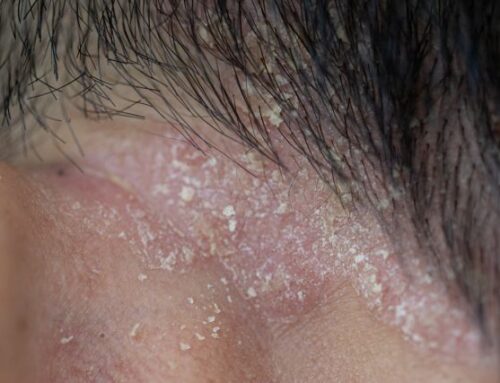Ozempic, Mounjaro and Hair Loss
Ozempic and Mounjaro have gained significant attention recently as promising treatments for type 2 diabetes and weight management. However, some patients have reported experiencing hair loss while taking these medications. Today we want to look at what may be a potential connection between these drugs and hair thinning, examining the current research, possible mechanisms, and ways to address this side effect.
As more people turn to Ozempic and Mounjaro to manage their health conditions, it’s important to be aware of all potential effects – both positive and negative. While hair loss is not a universal side effect, understanding the risk can help patients make informed decisions about their treatment options in consultation first with their healthcare providers.
What are Ozempic and Mounjaro?
Ozempic and Mounjaro are injectable medications used to treat type 2 diabetes and aid in weight loss. They belong to a class of drugs called GLP-1 receptor agonists, which work by mimicking a hormone that regulates blood sugar and appetite.
Ozempic contains the active ingredient semaglutide and is manufactured by Novo Nordisk. It was first approved by the FDA in 2017 for treating type 2 diabetes. In 2021, a higher dose version called Wegovy was approved specifically for chronic weight management.
Mounjaro contains tirzepatide and is made by Eli Lilly. It was approved in 2022 for type 2 diabetes treatment. Mounjaro acts on both GLP-1 and GIP receptors, potentially offering enhanced blood sugar control and weight loss effects compared to Ozempic.
Both medications are typically injected once weekly using prefilled pens. They work by increasing insulin production, decreasing glucose release from the liver, slowing digestion, and reducing appetite. This helps lower blood sugar levels and can lead to significant weight loss in many patients.
Reported Hair Loss with Ozempic and Mounjaro
While hair loss is not listed as a common side effect in the prescribing information for Ozempic or Mounjaro, some patients have reported experiencing increased hair shedding or thinning while taking these medications.
Clinical trial data provides some insight into the prevalence of this side effect:
- In Wegovy (high-dose semaglutide) studies, hair loss was reported in 3% of adults and 4% of adolescents taking the medication, compared to 1% and 0% in the placebo groups respectively.
- A meta-analysis of Mounjaro trials found that approximately 5.7% of participants experienced some degree of hair loss over 2 years of treatment.
- Another study noted hair loss in 4-5% of patients taking Mounjaro compared to less than 1% on placebo.
While these percentages are relatively low, they do suggest that hair thinning may occur more frequently with these medications than in the general population. However, it’s important to note that many factors can contribute to hair loss, so a direct causal relationship has not been definitively established.
Potential Mechanisms of Hair Loss
The exact reason why Ozempic, Mounjaro, or similar GLP-1 medications might cause hair loss in some individuals is not fully understood. However, there are several theories about potential mechanisms:
- Rapid weight loss: These drugs often lead to significant weight reduction, which can trigger a type of temporary hair shedding called telogen effluvium. This occurs when physical stress causes more hair follicles than usual to enter the resting phase.
- Nutritional changes: Decreased appetite and food intake may lead to vitamin or mineral deficiencies that impact hair growth.
- Hormonal shifts: GLP-1 drugs affect various hormones in the body, which could potentially influence the hair growth cycle.
- Metabolic changes: Alterations in glucose metabolism or insulin levels might indirectly affect hair follicle function.
- Direct drug effects: While not proven, it’s possible the medications themselves could have some impact on hair follicles or growth factors.
More research is needed to clarify the underlying mechanisms and determine if certain individuals are more susceptible to this side effect.
Is There a Link Between Permanent Hair Loss and Ozempic or Mounjaro?
The good news is that studies seem to show that in most cases, hair loss associated with Ozempic, Mounjaro, or similar medications appears to be temporary. If the cause is related to rapid weight loss or nutritional changes, hair growth typically resumes once weight stabilizes and any deficiencies are addressed.
For many patients, hair shedding peaks around 3-6 months after starting treatment or experiencing significant weight loss. Hair regrowth often begins within 6-12 months as the body adjusts to the medication and new metabolic state.
However, if you notice persistent or worsening hair loss while taking these drugs, it’s important to consult your healthcare provider. They can help determine if the medication is likely the cause or if other factors may be contributing to your hair thinning.
Managing Hair Loss While Taking Ozempic or Mounjaro
If you’re experiencing hair loss while on Ozempic, Mounjaro, or a similar medication, there are several steps you can take to help minimize the impact and support healthy hair growth:
- Optimize nutrition: Ensure you’re getting adequate protein, iron, biotin, and other key nutrients for hair health. Your doctor may recommend supplements if needed.
- Use gentle hair care practices: Avoid harsh chemicals, excessive heat styling, and tight hairstyles that can stress the hair and scalp.
- Consider topical treatments: Over-the-counter minoxidil or prescription medications like finasteride (for men) may help combat hair thinning.
- Explore low-level laser therapy: Some studies suggest this can stimulate hair follicles and improve growth.
- Manage stress: High stress levels can exacerbate hair loss, so find healthy ways to relax and cope with anxiety.
- Be patient: Remember that hair regrowth takes time, often several months to a year for noticeable improvement.
- Discuss options with your doctor: They may be able to adjust your medication dosage or consider alternative treatments if hair loss is severe or distressing.
Other Medications That May Cause Hair Loss
It’s worth noting that Ozempic and Mounjaro are not the only medications associated with potential hair loss. Many commonly prescribed drugs can have this side effect, including:
- Certain antidepressants
- Blood pressure medications (beta blockers, ACE inhibitors)
- Cholesterol-lowering statins
- Hormone therapies (including birth control pills)
- Some arthritis medications
- Anticoagulants (blood thinners)
- Chemotherapy drugs
If you’re taking multiple medications and experiencing hair loss, it’s important to review all of them with your healthcare provider to identify potential culprits and explore alternatives if needed.
When to Seek Professional Help
While some degree of hair shedding can be normal, especially during periods of weight loss or medication changes, there are times when it’s important to seek professional evaluation:
- If hair loss is sudden, severe, or accompanied by scalp irritation
- If you notice patchy hair loss or circular bald spots
- If hair thinning persists for more than 6-12 months
- If you’re concerned about the emotional impact of hair loss
A dermatologist or trichologist (hair and scalp specialist) can perform a thorough examination, potentially including blood tests or scalp biopsies, to determine the underlying cause of your hair loss and recommend appropriate treatments.
The Bigger Picture: Weighing Benefits and Risks
When considering the potential for hair loss with medications like Ozempic or Mounjaro, it’s important to weigh this side effect against the overall benefits of treatment. For many patients, the improvements in blood sugar control, weight management, and cardiovascular health far outweigh the risk of temporary hair thinning.
However, every individual’s situation is unique. If hair loss is significantly impacting your quality of life or self-esteem, don’t hesitate to discuss your concerns with your healthcare provider. They can help you explore effective treatment options or strategies to minimize this side effect while still managing your underlying health conditions effectively.
Common Causes of Hair Loss in Men & Women
Hair loss is a common concern for both men and women. The most common causes of hair loss include androgentic alopecia (genetic, or hereditary hair loss), Telogen Effluvium (triggered by severe stress to the central nervous system), nutritional deficiences, hormonal changes, certain medications, medical conditions such as thyroid disorders, and scalp infections, among others.
Advancements in Hair Restoration Options for Men and Women
Hair restoration solutions have advanced significantly, offering effective options tailored to the underlying causes of hair loss in men and women. EHT (Enhanced Hair Therapy) is a non-invasive treatment that uses growth factors to stimulate natural hair growth. This approach is particularly effective for individuals experiencing hair thinning due to genetic hair loss or stress, as it rejuvenates dormant follicles and improves scalp health.
Low-Level Laser Hair Therapy (LLLT) is leading FDA cleared hair loss treatment solution that uses columnated light energy to stimulate cellular activity in hair follicles. LLLT is painless and suitable for androgenetic alopecia in both men and women, enhancing hair density and reducing shedding by improving blood flow to the scalp.
For more severe or advanced hair loss, surgical hair transplants provide a lasting solution by redistributing healthy hair follicles from denser areas to balding or thinning regions. Techniques like Multi-Unit Hair Grafting FUT procedures and robotic Follicular Unit Extraction (FUE) transplant procedures ensure natural-looking results with virtually non-existent scarring in the donor area. These procedures are ideal for individuals whose hair loss has stabilized and who seek a permanent restoration option. While these treatments address different causes, a comprehensive evaluation by a dermatologist or trichologist can help determine the most suitable approach based on factors like the severity of hair loss, scalp condition, and personal goals.
Talk to a Hair Restoration Specialist Near You
Hair loss can be emotionally devastating regardless of its cause. If you are experiencing hair loss and are considering doing something about it, don’t hesitate to reach out to the hair restoration specialists at Get Your Hair Back Hair Restoration at our McLean, Virginia hair restoration clinic. We offer free, confidential appointments to discuss your hair loss concerns and answer all your questions. Taking this proactive step to solving your hair loss problems can help you feel more confident and self-assured.
DISCLAIMER:
The content on this website is for general informational purposes only and is not intended to be a substitute for professional medical advice, diagnosis or treatment. Always consult with a qualified and licensed physician or other medical care provider and follow their advice without delay regardless of anything read on this website.



